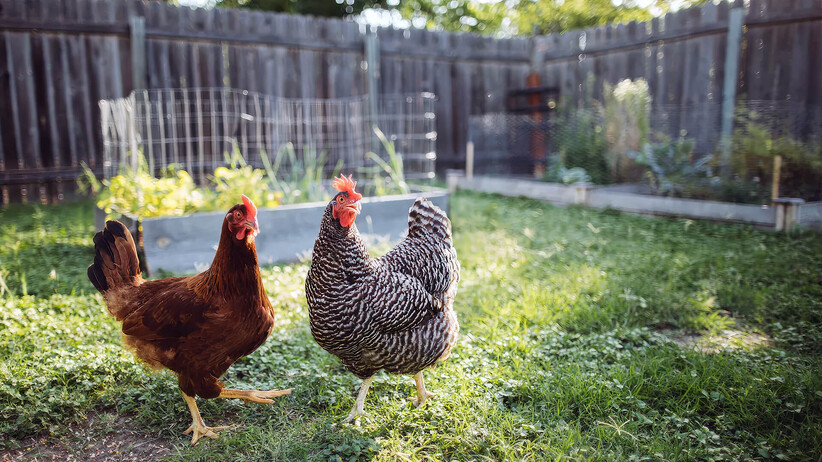Raising chickens in your backyard is both a rewarding and a nerve-wracking experience.
Sure, you enjoy a daily delivery of fresh eggs, but with them comes great responsibility. One such responsibility that falls on the shoulders of chicken owners is whether their poultry is safe or not every night in the yard.
As first-time chicken owners, we, too, went through the same thing; in fact, we checked on our chickens after every few hours to make sure they were safe from predators. Over the years, we’ve learned quite a lot from experience, implementing some hacks from the experts.
So, if you’re determined to keep a backyard flock– for freshly laid eggs or free fertiliser– this guide is worth reading! You’ll find three ingenious ways to keep chickens in your yard so they don’t trespass into your neighbour’s yard or property.
Without further ado, let’s cut to the chase!
Things To Know Before Keeping Chickens In Your Backyard
Knowing a few things before buying chickens is important whether you’re a country dweller or an urban resident. Look at this section as we walk you through the basics of keeping chickens.
1. How Many Chickens Can You Keep?
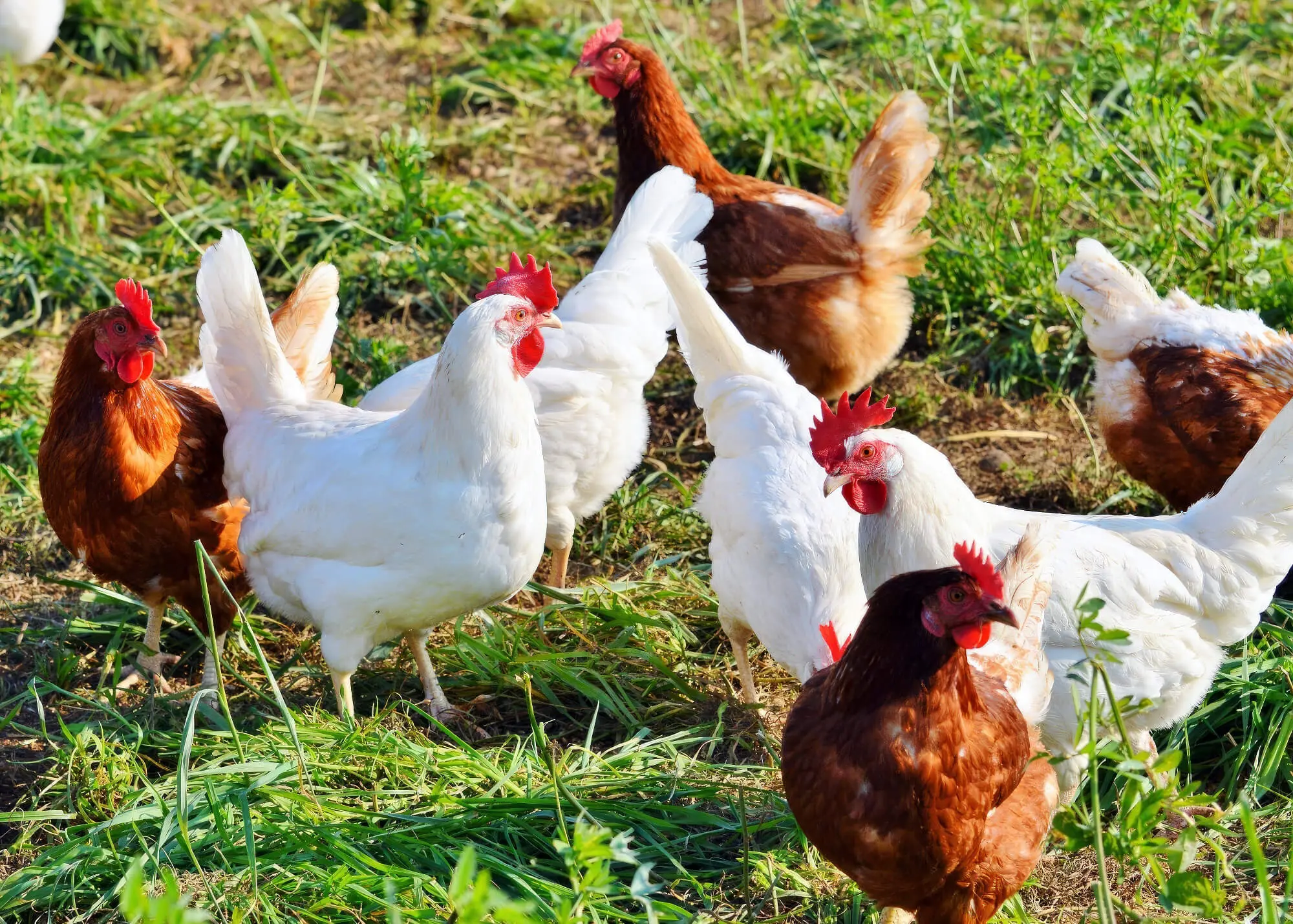
Only a few know that certain laws are laid down by the State government and the local councils when it comes to keeping backyard chickens. These rules are mostly set in place to keep your chickens healthy and ensure the neighbours or the poultry industry pose no threat to their existence.
So, how many chicks are you allowed to keep in Australia? Without a permit, you can stay in a residential area with only ten chickens, i.e., hens, not roosters. Wondering why? Because roosters innately start an atrocious clamour early morning, which will upset your neighbours.
2. Vaccination Records
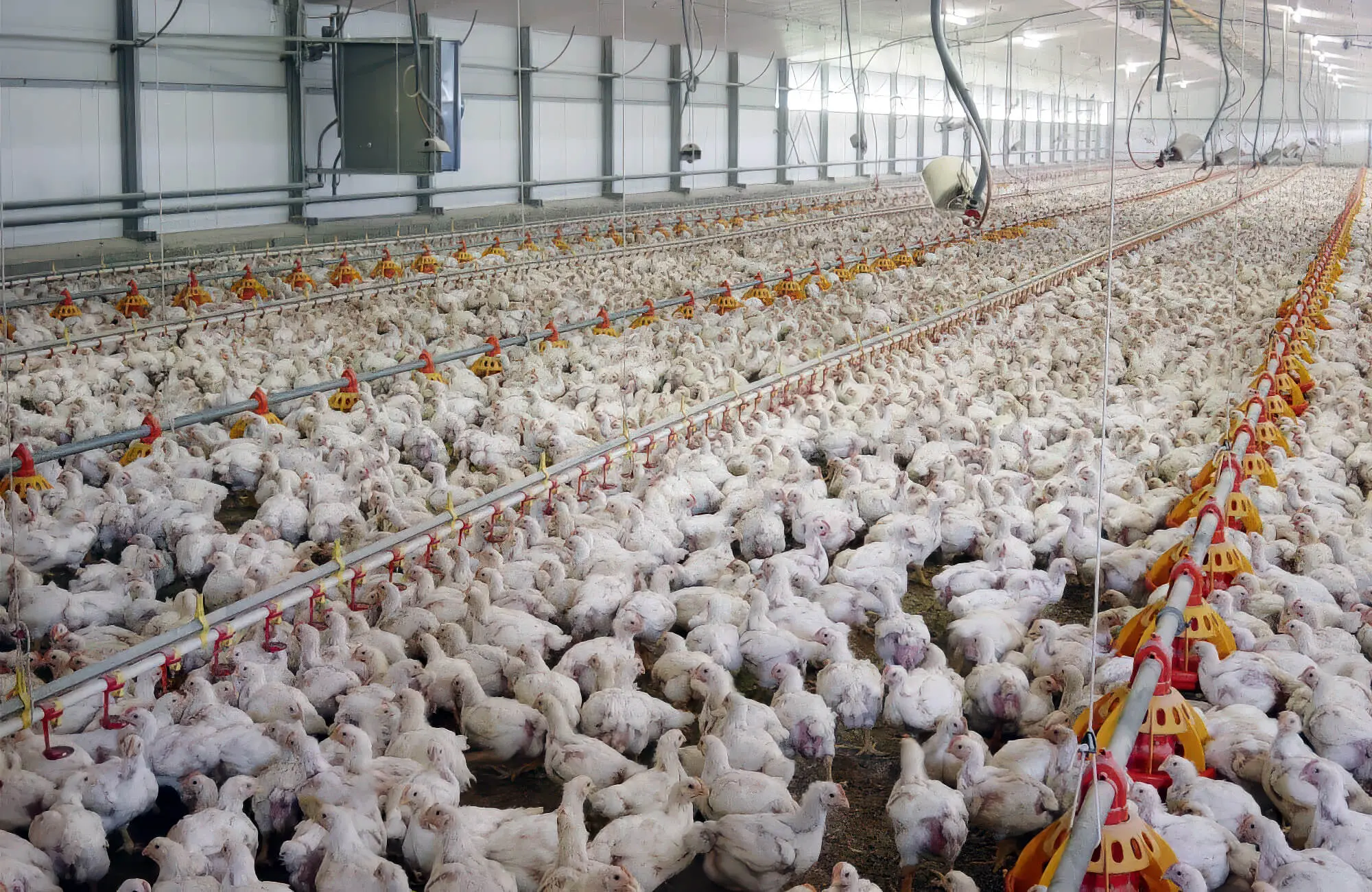
You should always buy chickens from a reputable breeder, even though this may cost you a bit. We recommend so because reputable breeders sell healthy chickens, meaning they’ll be laying eggs of good quality.
Always ask for vaccination records, even if you buy a one-day-old chicken. A one-day-old chick should be vaccinated against Marek’s disease, so ask the breeder for the certificate. Other than that, your backyard chicken must be vaccinated against the following:
- Newcastle disease
- Infectious bronchitis
- Infectious laryngotracheitis
- Fowl pox
Experts recommend purchasing all your backyard chickens from the same breeder to prevent disease transfer from one set of hens to the other. Also, chicken keepers must isolate new chickens from the old ones for at least 14 days.
3. Chicken Coop Requirements
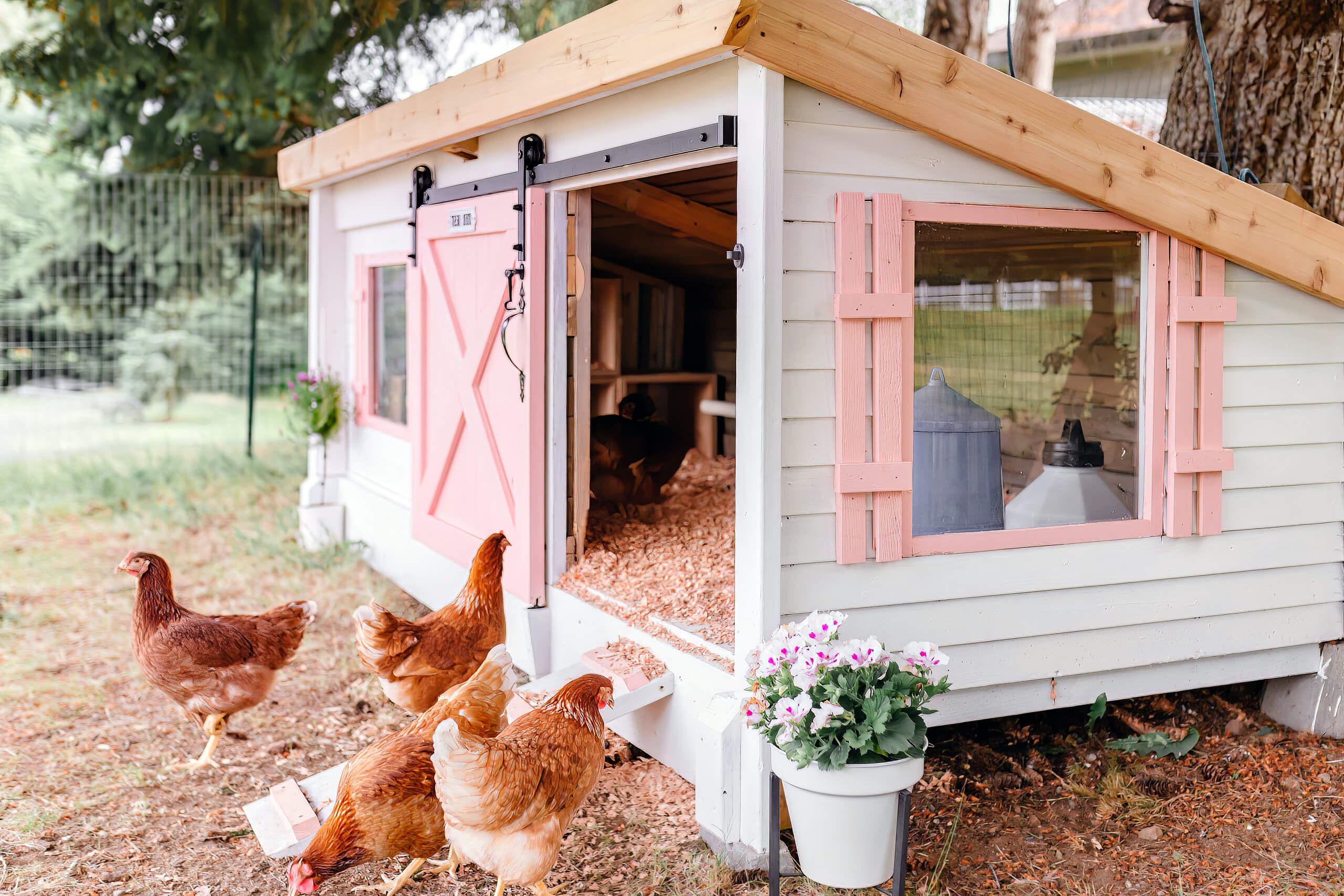
Although there are no laws concerning chicken coops, they must meet the following requirements:
- Each property may have only one coop.
- Chicken coops shouldn’t be more than 15 square metres.
- They cannot be taller than 3m above ground level.
- Must feature non-combustible material when 5m away from residential or bushfire zones.
- It must be enclosed to ensure chickens stay within them.
- Must have appropriate roof water drainage
- A chicken coop must be placed at least 4.5m from a public hall, school or residence.
4. Chicken Breeds
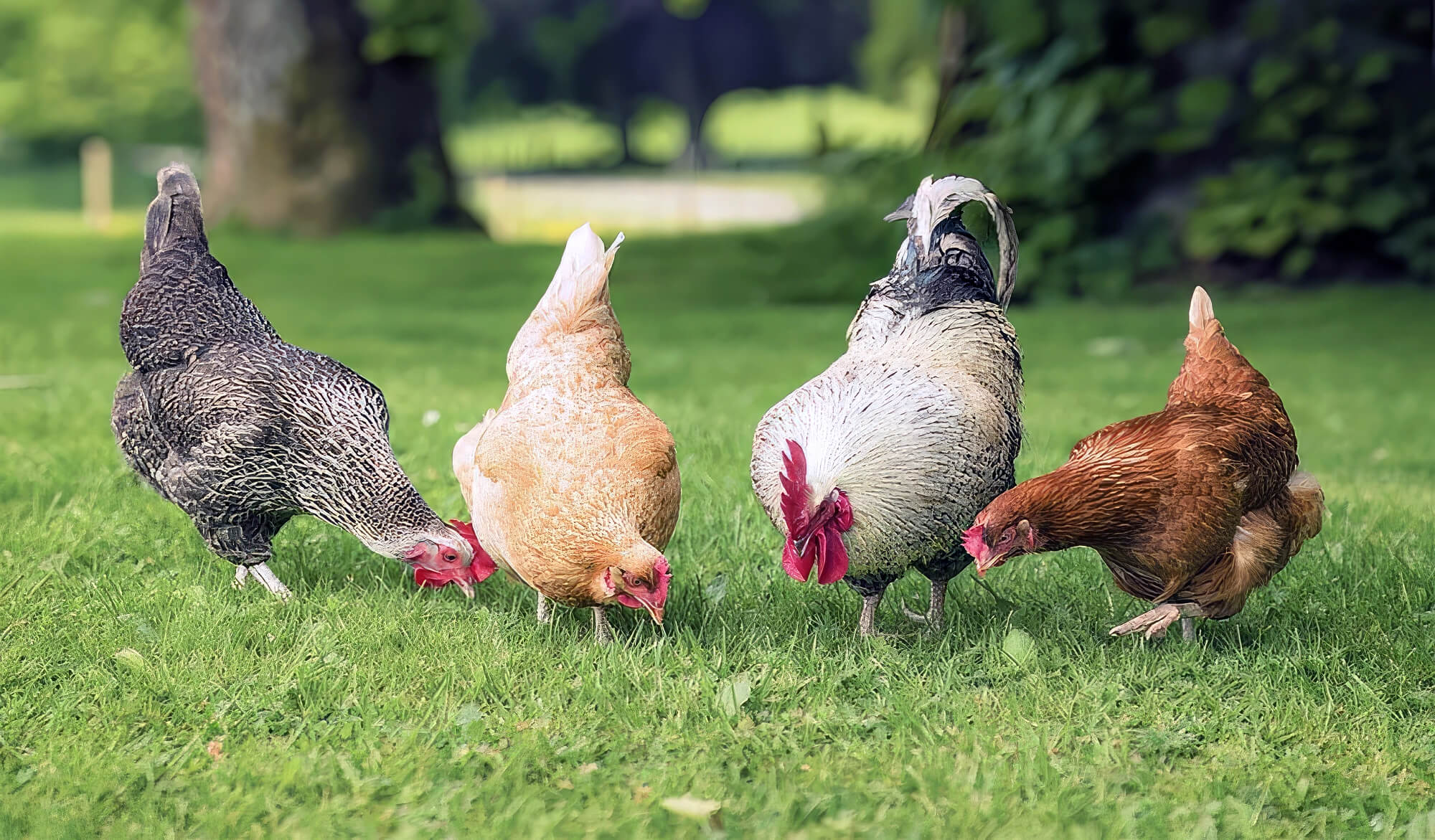
You’d be surprised that there are 400 different chicken breeds with an incredible range of plumage and colours. That means you need to be extra careful when buying chickens for a constant supply of eggs.
If you plan to keep chickens to have enough eggs for an entire household, here’s a quick rundown of the best chicken breeds to pick from.
A. Jungle Fowl
Though wild birds, Jungle Fowls lay eggs seasonally, eat less and are very alert.
B. Leghorn
Even though Leghorn is believed to have originated in Italy, it is one of the most popular breeds worldwide for producing white eggs. On average, Leghorns lay about 280 eggs annually, which can reach up to 320. But they have a timid and highly active temperament, so they may not be the best choice for most chicken owners.
C. Frizzle
Frizzle is a friendly breed that doesn’t eat much. Although ideal for hot climates, their fragile feathers make them unsuitable for rainy or cold weather.
How To Keep Chickens In Your Yard
We all know chickens can’t fly long distances, but does that prevent them from escaping your backyard? Certainly not! When chickens escape your yard, they become vulnerable to snakes, foxes and other animals.
If they are lucky enough to defend themselves from predators, they may barge into your neighbours’ yards or property, causing much trouble. To prevent landing yourself and your chickens in such troublesome scenarios, you must ensure their safety without limiting their freedom.
In this section, we shall walk you through easy tips that you can adopt so they can enjoy a free-range lifestyle safely.
1. Invest In A Chicken House
Investing in chicken housing is one of the best things you can do as a chicken-keeping owner to ensure the safety of your flock.
Whether you own baby chicks or hens, we suggest investing in large chicken coops so your poultry has ample space to roam. Although there are no laws concerning a chicken coop, you should go for one that is predator-proof.
As a rule of thumb, go for a chicken house that is no more than 3m tall; at the same time, it should be larger than 152m.
How Much Space Per Chicken?
As chickens tend to rest close together, most chicken keepers commit to going for a small coop. But if you’re keeping chickens, you must know that overcrowding or too many chicks crammed in a small space will lead to unhealthy and unhappy chooks.
Ideally, each chicken should get at least 4 square feet or 0.37 square metres of an area within the coop.
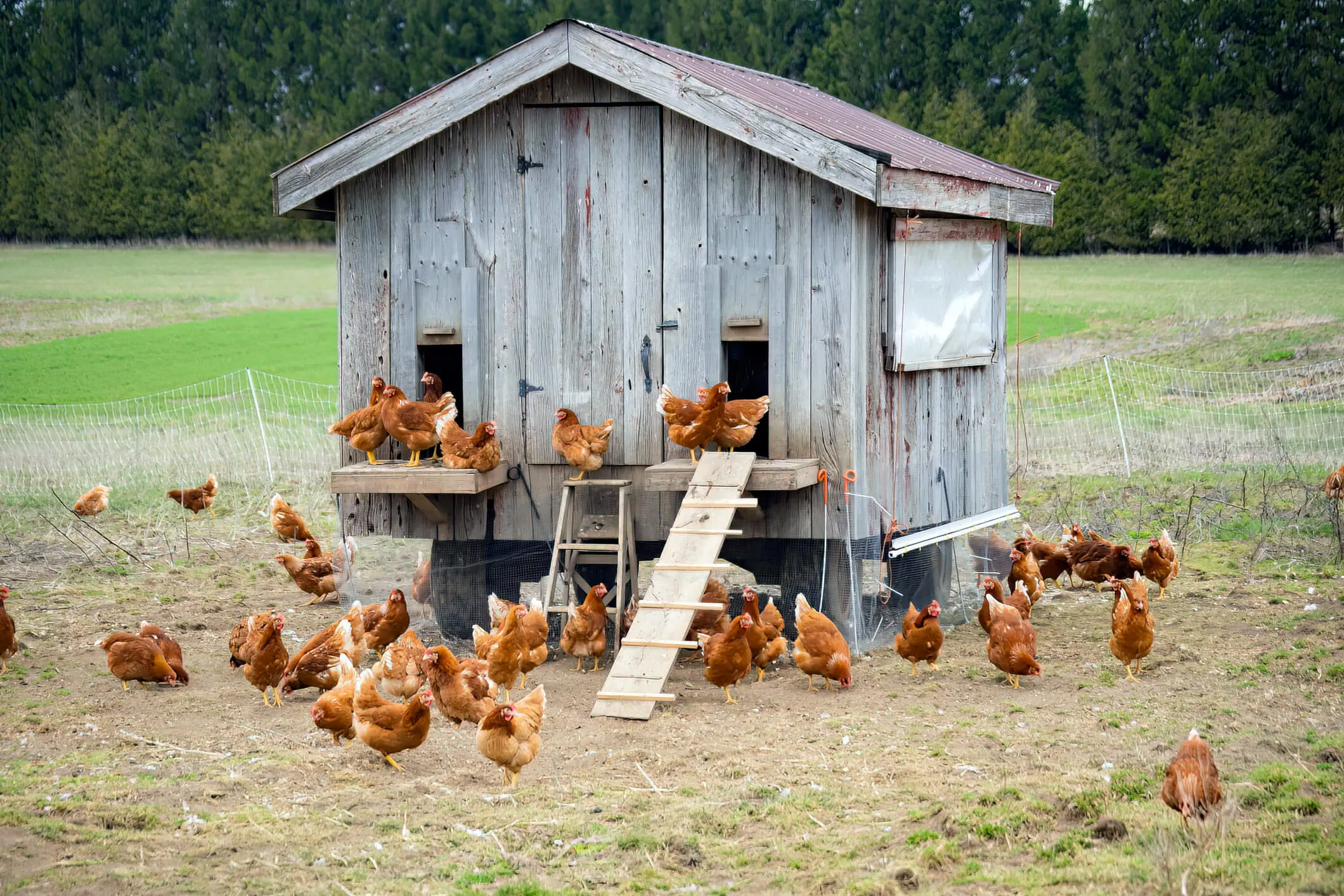
But the size isn’t the only thing you must consider when buying a chicken coop. The nesting boxes you choose play a crucial role in egg production. Although it may sound strange, chickens prefer laying eggs in attractive nesting boxes. And since each hen requires its nesting box, avoid going for overly large boxes.
Those who don’t know where to shop for a good-quality chicken coop can check out You & Me Chicken House With Pitched Roof, which would be a worthy addition to your backyard. Sporting a wooden structure, this chicken coop features a chicken wire mesh that makes it predator and escape-proof, so it will keep your chickens safe.
For more than three hens, the You & Me Wooden Chicken House With Running Pen Large will be perfect for your chicken yard. It is more spacious than the pitched roof structure so free-range chickens will love it.
2. Install Fencing
If you don’t want to confine your chickens in a chicken coop, installing electric fencing will protect your birds from predators or getting lost. When it comes to fencing free-range chickens, you can do it in 2 ways.
I. Poultry Fencing
Installing fencing on your property is one of the best ways to keep your backyard chicken safe from animals.
Ideally, the fence should be about 6 feet or 2 metres high, overhanging 30 cm and constructed at a 45° angle to the dominant part of the fence. Furthermore, it should protrude forward to lend adequate protection from land predators, especially those adept at climbing fences.
At the same time, don’t forget to dig under the mesh base to prevent animals from burrowing their way into the poultry haven.
Going for a mesh with large holes is always discouraged because most animals, especially minks, can wiggle through the holes. A net with no larger than 50 mm gaps would be the right choice for deterring minks, foxes and other predators.
If you don’t mind spending a bit to keep your backyard chickens safe, electric fencing would be a better option than regular fencing. Besides keeping free-range chickens safe from snakes, possums, wolves and foxes, it will protect their fresh eggs and chicken feed from rats and aerial predators, i.e., birds like hawks or owls.
The best thing about these nets is that they are easy to install and lightweight.
II. Chicken Run
Adding a chicken run is another way to fence chickens (free-range) in your backyard.
Chicken run is, basically, an extension of a chicken coop. A chicken run gives your chicks the freedom to get out of their nest box, stretch, preen and do whatever they want while being safe.
Although you can DIY build a chicken run, it is time-consuming. The best bet is purchasing a readymade coop like the You & Me Wooden Flat Roof Chicken House With Run from the Planet Pet.
However, if you have large flocks, the Planet Pet You & Me Chicken Barn With Run will be the right choice, as it will accommodate more than three hens.
3. Wing Clipping
Keeping chickens free-range ensures they are healthy, so consequently, you will get healthy chicken eggs. But the risks associated with free-range chickens are aplenty.
And if installing fencing or investing in a coop or run means overspending your monthly budget, wing clipping could help prevent them from escaping the yard. This established practice may sound cruel, but it is pain-free, provided you do it correctly.
However, all those keeping chickens must remember that wing clipping will decrease the chicks’ mobility. If a predator enters your yard, your free-range chickens won’t escape the sharp claws or teeth.
So, we suggest you refrain from wing clipping unless necessary or is the only solution to prevent your chickens from escaping the yard.
Keeping Backyard Chickens Safe
Raising free-range chickens in your home backyard is exciting, but at the same time, it’s essential to keep them safe from predators and prevent them from escaping the property.
Therefore, the only way to ensure their safety is to create some kind of boundary, which will deter animals and keep your hens safe from flying out. From investing in chicken coops and runs to installing fencing, there are numerous ways to keep your chickens in your yard.
Before you make a final decision, we suggest you consider the size of your yard and the number of chickens. Of course, budget is also essential, but don’t make it the sole factor in deciding which solution you should go for.
All we’d say is to think long-term when it comes to the safety of your chickens, even if that requires forking out a few dollars extra.

